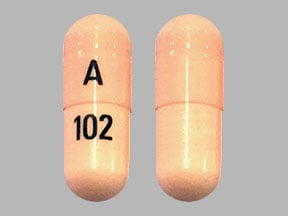
Lithium Carbonate Coupons & Savings Card – Discount Prices from $12.23
This medication is used to treat manic-depressive disorder (bipolar disorder). It works to stabilize the mood and reduce extremes in behavior by restoring the balance of certain natural substances (neurotransmitters) in the brain. Some of the benefits of continued use of this medication include decreasing how often manic episodes occur and decreasing the symptoms of manic episodes, such as exaggerated feelings of well-being, feelings that others wish to harm you, irritability, anxiousness, rapid/loud speech, and aggressive/hostile behaviors.
Our coupons are free to use. Before paying, show the pharmacist your Lithium Carbonate savings card to get your free discount. Use our filters below to edit the prescription box to match your needs. The Lithium Carbonate prices will update based on your prescription needs. Above our Lithium Carbonate coupons, you can change your location to see pharmacy prices and costs in other areas. We're here to help you buy Lithium Carbonate at the lowest price with our prescription discount card.
My prescription
Edit
300MG, Lithium Carbonate (90 Capsules)
Select pharmacy

CVS
$33.05
COUPON PRICE
Walgreens
$12.23
COUPON PRICE
Albertsons
$13.28
COUPON PRICE
Walmart
$18.01
COUPON PRICELithium Carbonate savings card
Show this card to your pharmacist
Walgreens
$12.23
BIN
ID
PCN
GRP
011867
LH4EF70762
HT
LABH001
Powered by
This medication is used to treat manic-depressive disorder (bipolar disorder). It works to stabilize the mood and reduce extremes in behavior by restoring the balance of certain natural substances (neurotransmitters) in the brain. Some of the benefits of continued use of this medication include decreasing how often manic episodes occur and decreasing the symptoms of manic episodes, such as exaggerated feelings of well-being, feelings that others wish to harm you, irritability, anxiousness, rapid/loud speech, and aggressive/hostile behaviors.
Our coupons are free to use. Before paying, show the pharmacist your Lithium Carbonate savings card to get your free discount. Use our filters below to edit the prescription box to match your needs. The Lithium Carbonate prices will update based on your prescription needs. Above our Lithium Carbonate coupons, you can change your location to see pharmacy prices and costs in other areas. We're here to help you buy Lithium Carbonate at the lowest price with our prescription discount card.
